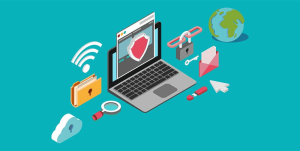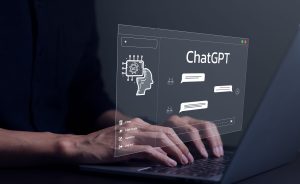For this module, I chose the Hyperlinked School Library adventure. Something that was very eye-opening to me was the notion that perhaps children are not necessarily the adept “digital natives” we view them to be. In general, they understand concepts related to internet use, but may not always be able to apply them correctly. The article “Digital Natives or Naïve Experts” points out that many children know what a password is, but cannot always remember them for different devices and apps (Digital natives, 2019). As a teacher myself, I have seen a surprising number of students request help logging into platforms that we use regularly (although this is something I have compassion for, since most of us have a lot of passwords to keep track of). I would say that this is perhaps less of a technology skill to be learned than it is an issue of organization; perhaps teaching children how to use various password tracking systems would be beneficial.
Student privacy on the internet is another issue to be aware of. In general, children understand that certain dangers exist, but may not fully understand the root of them. The article mentioned that children know they shouldn’t send photos of themselves to strangers, but don’t see a problem with uploading a video of themselves to TikTok or other social media platforms (Digital natives, 2019). This would indicate that privacy and online safety instruction may need to be revisited often at school, and it seems the library would be an optimal place to make that happen. Children need to understand how social media operates, who can view their content, and why there may be privacy issues related to what they share and with whom they share it.

Image: Klik Solutions
Something else on this topic I wanted to mention is student usage of search engines and the now-ubiquitous AI technology. In particular, my colleagues and I have had to focus heavily on research skills with students, emphasizing that “Chat GPT”, “Google”, “AI Summary”, etc. are not acceptable to list as sources for a paper or project. These tools can absolutely be used to help guide students toward quality sources they can use, but I’ve had to repeatedly show them where to go on the screen to find the links to actual sources that the AI platform is taking the information from when it answers their queries. The students have struggled a lot with this concept; they know how to use these tools to find answers and are fairly proficient at wording their search queries to find what they need, but in general they do not understand the process that AI uses to provide these answers. It’s been an adjustment for them as I’ve had to explain, “Here is where the information you are seeing actually comes from. These are the links to the articles you should be reading and using as sources for your research”. I think this is such new territory for educators, and it’s both amazing and also slightly terrifying to think that it’s only going to continue advancing and progressing, which means we will need to adapt our instruction to keep up with these changes. None of this is to say that AI is a “bad” thing for students to use; it has SO many fantastic and revolutionary uses in education. But, wow, it’s going to keep us all on our toes! I think it would be highly beneficial for the school librarian to coordinate with and perhaps offer instruction to the staff on strategies for the appropriate and ethical use of AI, thus ensuring consistency across the board.

Image: Aptara Corp
Reference
Digital natives or naive experts? Exploring how Norwegian children understand the internet. (2019, February 13). The London School of Economics and Political Science. https://blogs.lse.ac.uk/parenting4digitalfuture/2019/02/13/digital-natives-or-naive-experts/
Leave a Reply